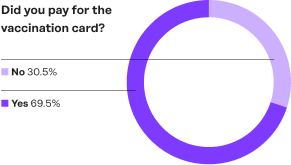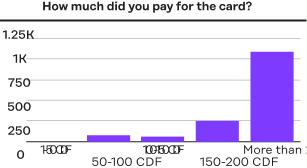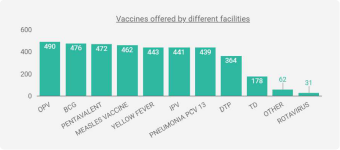Challenge
In order to improve immunization coverage in the Democratic Republic of the Congo, the Bill and Melinda Gates Foundation, as well as Gavi, the Vaccine Alliance, sought to support the country’s Expanded Program on Immunization (EPI) by identifying where service deficiencies were likely driving immunization deficits in the capital city of Kinshasa. The ability to provide equitable access to immunizations required a clear understanding of what services and resources were available, where to find them, and any potential barriers citizens would find trying to accessing them.
Solution
The EPI and their consulting partner, Acasus, used Premise to complete three data collection tasks. First they expanded their health facility registry by mapping private sector facilities in Kinshasa Province. Then they tasked Premise Contributors with visiting these facilities in order to enrich their data on each facility’s attributes, including the availability of vaccines and the schedule of immunization sessions. Lastly, they used Premise to monitor immunization sessions and perform exit interviews and household visits.
Throughout the three phases, Contributors were asked to:
- Take photos of health facilities and document names and service hours
- Interview health facility staff to record vaccine availability, taking photos of vials as proof
- Validate that vaccine refrigerators and their voltage regulators were still on-site and functional
- Observe immunization sessions to measure vaccine service reliability
- Ask child caretakers about factors related to patient satisfaction, e.g. cleanliness and fees

Findings
Premise Contributors identified 650 health facilities that were previously not included in the client’s dataset. Contributors helped document service hours, vaccine availability, and cold storage capabilities at 782 health facilities. Over the course of three months, Contributors monitored 1,635 immunizations at more than 250 facilities and conducted over 2,500 interviews with caregivers. Results showed that 70% of caregivers paid for their child’s vaccination card despite a policy against charging for such services.



Implications
Equipped with these observations from Premise, the customer was able to:
- Add the discovered health facility data into their existing datasets
- Gauge perceptions of health facility quality and vaccine awareness in the DRC
- Understand which health facilities were performing better than others in order to initiate improvements and work toward equitable access